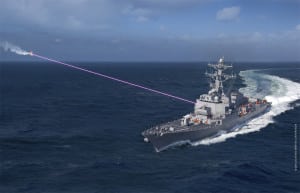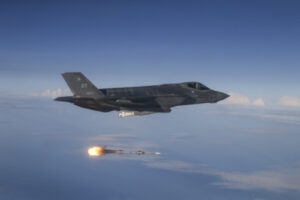Defense Daily
-
 Army
ArmyBell ‘Confident’ In Meeting Army’s FLRAA Acceleration, First Prototype Delivery In 2027
Bell [TXT] is “confident” it can meet the Army’s plan for a multi-year acceleration of the Future Long Range Assault Aircraft (FLRAA) program, a lead company official told Defense Daily, […]
Tagged in: -
 Air Force
Air ForceUSAF Cites ‘Design, Production, and Installation Cost Increases’ for B-52 RMP Breach
The U.S. Air Force B-52 Radar Modernization Program (RMP) has exceeded the 15 percent significant unit cost increase threshold “due to design, production, and installation cost increases,” the Air Force […]
-
 Space
SpaceCommercial Satellite Imagery Leaders See Increased International Demand
ST LOUIS — Commercial satellite imagery and sensing leaders see growing demand in the international market for geospatial intelligence and are looking at ways to increase collaboration and streamline the way […]
-
 Uncategorized
UncategorizedIC Exploring How To Reform Procurement Process To Expand Opportunities, Gabbard Says
ST. LOUIS—Mirroring Defense Secretary Pete Hegseth’s priority of opening up the DoD procurement process to find the best solutions, the intelligence community is doing the same, Director of National Intelligence […]
-
 Navy/USMC
Navy/USMCKilby: HELIOS Laser Weapon Problems Delayed Testing, Not At Full Power
The Navy’s top officer revealed a laser weapon installed on a destroyer to test an ability to disable drones and small boats has had problems in testing and is still […]
Tagged in: -
 Air Force
Air ForceAs USAF Looks to Future Requirements for CCA Radars, Raytheon Announces First Flight of PhantomStrike
RTX‘s [RTX] Raytheon said this month that its PhantomStrike radar had a first flight test on the Raytheon Multi-Program Testbed (MPT) aircraft in Ontario, Calif. The MPT–known as “Voodoo One” […]
-
 Navy/USMC
Navy/USMCElectric Boat And UAW Union Avoid Strike In Tentative Agreement
General Dynamics Electric Boat [GD] and the Marine Draftsmen’s Association (MDA) UAW Local 571 union reached a tentative agreement Sunday night, avoiding a strike by the 2,500 draftsmen, designers and […]
Tagged in: -
 Business/Financial
Business/FinancialIntelligence Community-Focused Vibrint Acquires Ampsight Adding New Customers
ST. LOUIS—Vibrint on Monday said it has acquired Ampsight, a small company with expertise in cloud, cybersecurity, and artificial intelligence that adds to its customer base in the intelligence community, […]
Tagged in: -
 Intelligence Community
Intelligence CommunityKey Geospatial Intel Lesson Of Ukraine War Is Closing Kill Chain, NATO Official Says
ST. LOUIS—The use of geospatial intelligence to accelerate decision making from the time a potential target has been detected until an effect is put against it has been an important […]
Tagged in: -
 Uncategorized
UncategorizedLos Alamos Plutonium Facility Moves Into 24/7 Operations, DNFSB Reports
Triad National Security, the prime contractor at Los Alamos National Laboratory, announced the beginning of phasing into 24/7 operations at the New Mexico lab’s plutonium facility, according to a Defense […]
